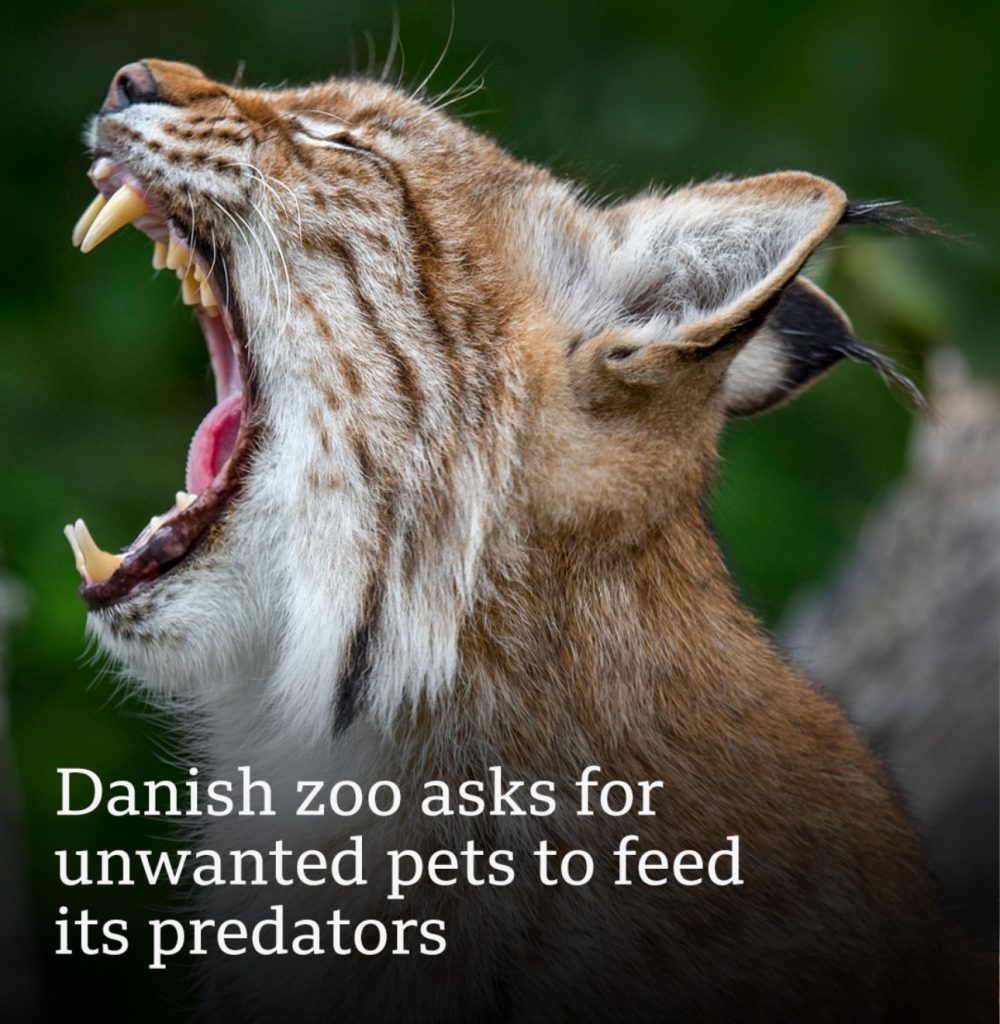Physical Address
304 North Cardinal St.
Dorchester Center, MA 02124
Physical Address
304 North Cardinal St.
Dorchester Center, MA 02124

In a unique and somewhat controversial move, a zoo in Denmark has issued a call for unwanted pets to feed its predators, raising eyebrows and sparking discussions about animal welfare and ethical treatment. This initiative, aimed at addressing both the zoo’s needs and the issue of abandoned pets, has drawn mixed reactions from the public.
The zoo, which has not disclosed specific details about the types of predators involved, has stated that it is seeking donations of small animals—mostly those that pet owners can no longer care for. The initiative is designed to ensure that the zoo’s carnivorous animals receive a varied and nutritious diet.
While zoos often rely on conventional sources for animal feed, such as livestock or specially formulated diets, this approach aims to reduce waste and provide a pragmatic solution to two pressing issues: managing unwanted pets and ensuring the well-being of the zoo’s predators.
The call for unwanted pets has sparked a significant ethical debate. Animal rights activists and concerned citizens have raised questions about the morality of using domesticated pets as food for zoo animals. Many argue that pets should be treated with compassion and that there are better ways to manage abandoned animals, such as increasing adoption efforts or improving animal welfare programs.
In response, the zoo has emphasized that the initiative is intended for animals that are already in distress and would not be suitable for rehoming. The organization is keen to stress its commitment to animal welfare, ensuring that any pets received are treated humanely.
The initiative also highlights a broader issue: the overpopulation of pets. Many animals end up in shelters or are abandoned due to various reasons, including financial constraints, lifestyle changes, or lack of awareness about the responsibilities of pet ownership. By offering a solution for unwanted pets, the zoo hopes to raise awareness about the importance of responsible pet ownership and the need for community support in addressing pet overpopulation.
Reactions from the community have been varied. Some people support the zoo’s initiative, viewing it as a practical solution to two interconnected problems. Others, however, express concern about the message it sends regarding pet ownership and the treatment of animals.
The zoo has encouraged open dialogue, inviting discussions on how to best handle the situation and improve animal welfare across the board.
The Danish zoo’s request for unwanted pets to feed its predators has opened up a complex conversation about ethics, animal welfare, and community responsibility. While the initiative aims to address practical challenges, it also prompts us to reflect on our roles as pet owners and advocates for animal welfare.
As this story unfolds, it serves as a reminder of the importance of compassion in all aspects of animal care and the need for collaborative efforts to ensure the well-being of both domesticated and wild animals.
